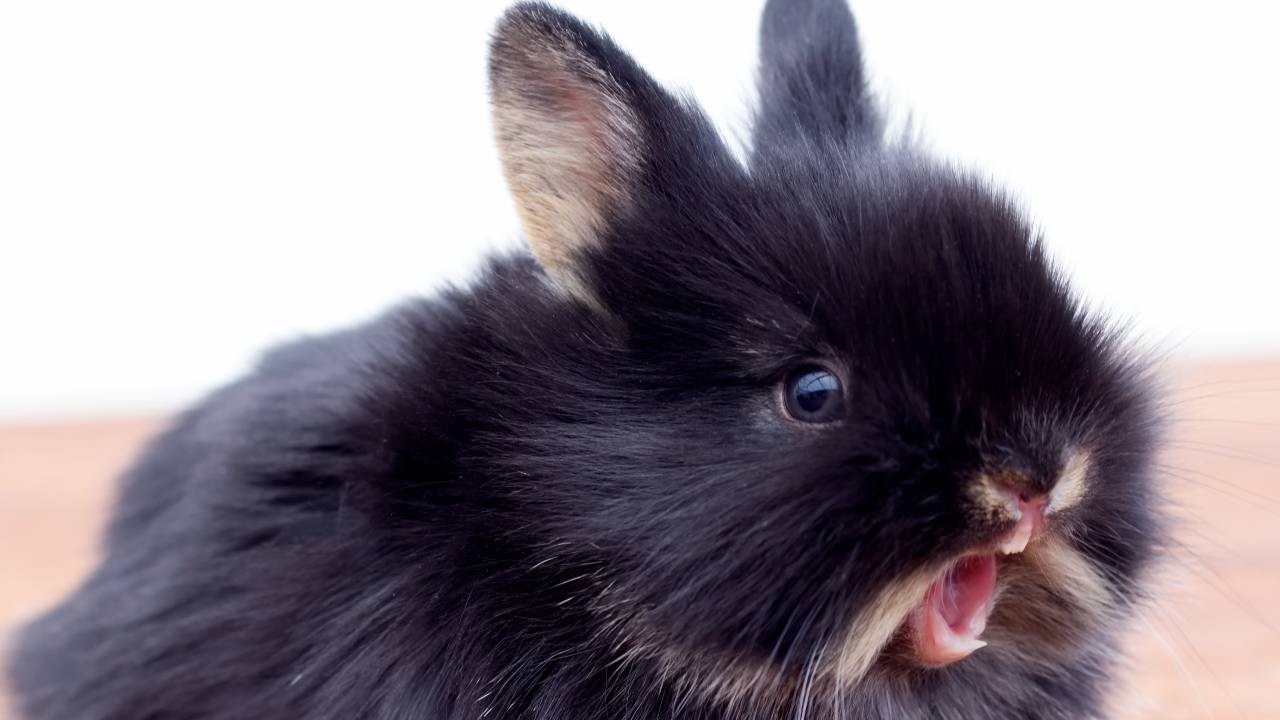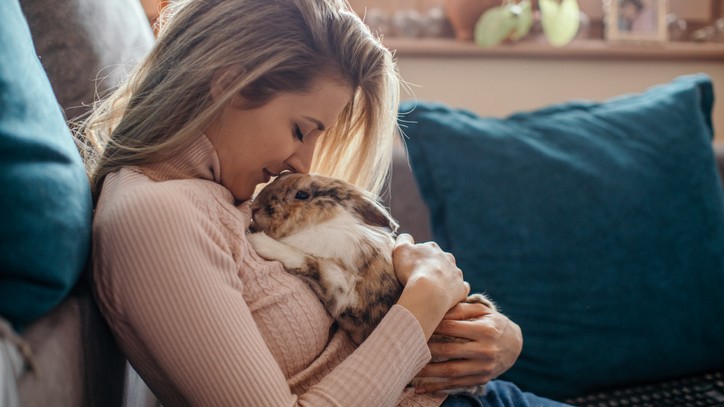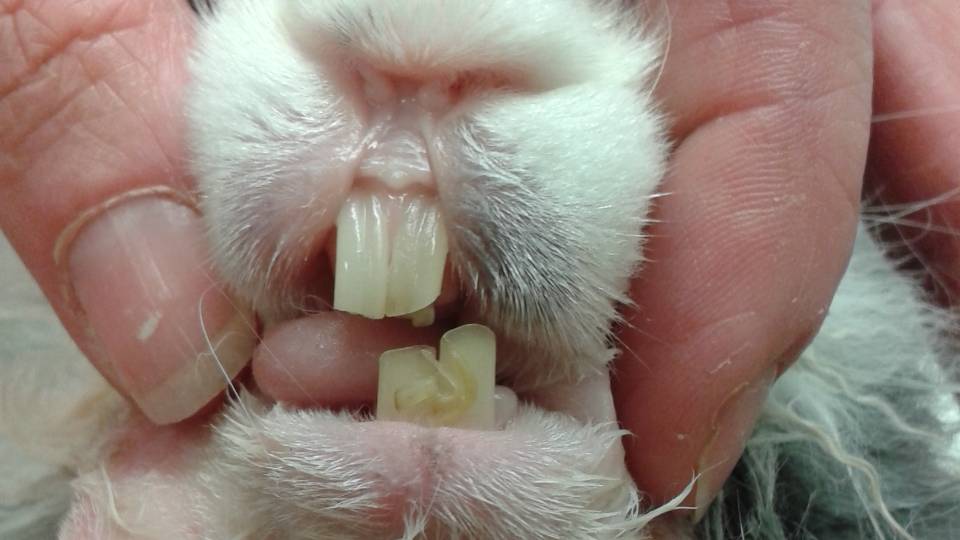Do rabbits bite? Understanding rabbit biting and how to avoid it
Many people ask, “do rabbits bite?” The simple answer is yes, but it is important to understand why

If you're considering welcoming a new pet bunny into your life, you may wonder do rabbit bite, especially if you have young children in your family who may want to play with their new pet 24/7.
When considering rabbit biting, we first need to think about their teeth. Rabbits have 28 teeth and, like human babies, kittens and puppies, they have deciduous (baby) teeth that fall out to make way for their adult teeth. However, this usually happens before they are born, or shortly after, so normally we are not aware these deciduous teeth exist.
All their teeth are ‘open rooted’, so continue to grow throughout their life. The large, sharp incisor teeth at the front of their mouth grow 2-3mm per week, while their molars (chewing teeth) grow 2-3mm per month. This is one reason why a diet high in grass and hay, which require lots of chewing, is essential as it helps to wear the teeth down.
Why would a rabbit bite you?
Rabbits may bite to defend themselves if they feel scared or threatened. They often bite other rabbits during a fight and are capable of inflicting deep wounds on each other. They can also injure humans and other animals, such as guinea pigs, which is one reason they must never live or even socialise with them.
Rabbits are more likely to bite if they are kept in an inappropriate environment that is too small, with no place to hide, and lacking mental and physical stimulation opportunities.
If you keep rabbits in the house, remember that indoor rabbit hutches are not big enough for them to be shut into and they must have 24/7 access to a larger area. The best indoor rabbit hutches have access that allows rabbits to come and go freely, retreating into them when they choose.
Why do rabbits bite your clothes?
Most rabbits do not like being handled and may bite to indicate they want to be put back down on the floor. In this case, they will bite the clothing of the handler, or any exposed skin.
Get the best advice, tips and top tech for your beloved Pets
Wild rabbits are only ever picked up by a predator – usually a fatal event – so, no matter how friendly our pet rabbits are, they may perceive the sensation of being picked up in the same way and respond by biting.
Rabbits may also tug at our clothes with their teeth simply for food or attention.

Why do rabbits bite their cage?
Rabbits may bite at the bars and wire of their cage due to frustration and boredom. They might perform this behavior, as well as chewing their cage, in an attempt to escape, pass the time, or reach something beyond the cage.
When housing rabbits, it is important to ensure that their enclosure has a footprint of at least 3m x 2m, and to provide lots of games for rabbits, enrichment and opportunities to dig, graze, hide, play, run, rest, and chew. These are natural behaviors for rabbits and having both mental and physical stimulation prevents boredom.
Do rabbits bite hard?
Most of the time, rabbits nip rather than inflict full bites, but this depends on why they are biting. If they feel scared, threatened, or are fighting with another rabbit, then they can bite hard, drawing blood and inflicting some nasty, deep wounds. If you do get bitten, it is best to speak to your doctor.

Tips to prevent bites
- Avoid picking rabbits up unless it is absolutely necessary, such as for checking their health or medication, and when you do handle them, make sure this is done carefully, gently, and with plenty of support for their hindquarters. You can sit on the floor to interact with your rabbits and allow them to come to you and sit on your lap for attention, if they choose to.
- Neutering of both sexes helps to prevent hormonally-driven frustration, especially in female rabbits, so neutering should be performed on all rabbits. This also means rabbits can live together (once bonded properly), with less chance of fighting. Neutering should be performed from three months of age for males and four months for females, before hormones begin to heighten.
- Never corner or chase your rabbits, as this will make them scared and likely to bite you.
How rabbits use their teeth to chew
As rabbits’ teeth grow throughout their life, it is important they wear them down with the correct diet. When rabbits chew hay and grass, they move their jaw in both a horizontal and vertical pattern, wearing down all parts of the teeth.
Hay and grass require a lot of chewing, so this increases the time spent keeping teeth trimmed. No other food, including pellets or greens, mimics this chewing action, which is one reason why when feeding rabbits, hay and grass should form 85 percent of their diet.
Rabbits whose teeth don’t grow properly could suffer from an increased risk of dental disease. This can be a lifelong problem that may also shorten their lifespan.
Summary
Rabbits bite to defend themselves when they are scared. Often, owners see this as aggressive behavior, but it is their way of communicating they are not happy about something. To avoid being bitten, make sure your rabbits have a suitable enclosure and only handle them when absolutely necessary.
Claire currently works in Kettering as a Head Nurse in a practice with a high rabbit caseload, as well as frequently lecturing and writing on rabbits to both veterinary professionals and owners.

